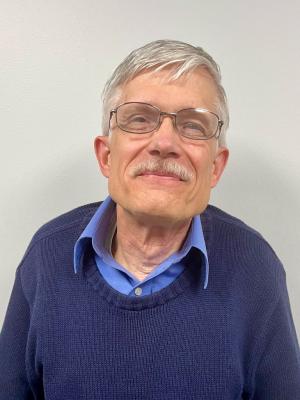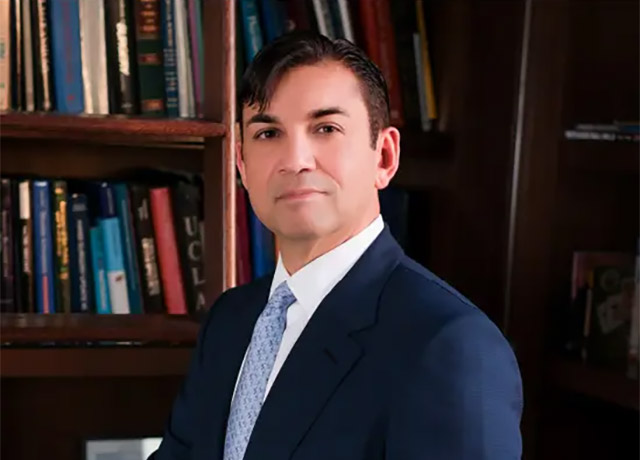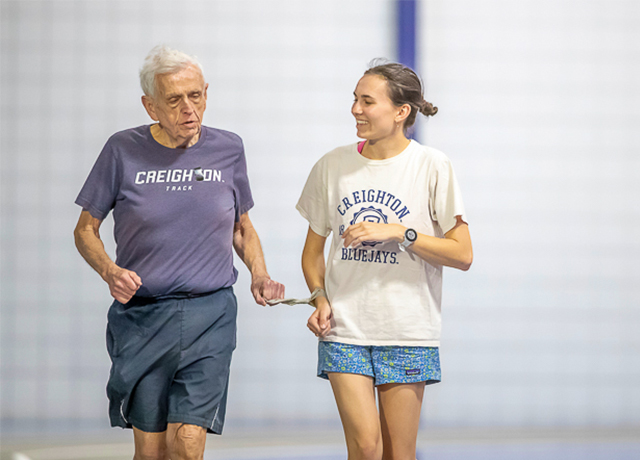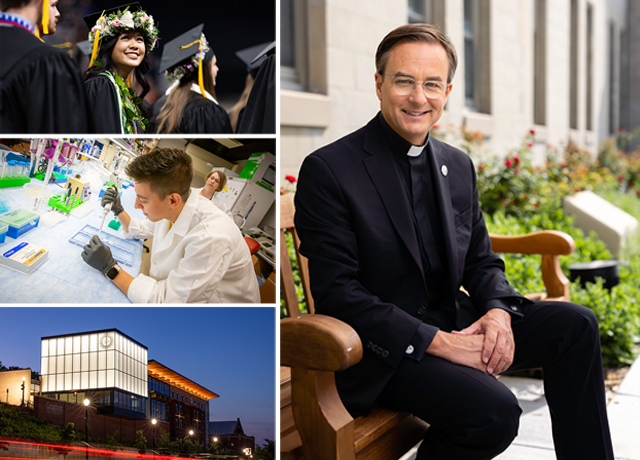Featured Testimonial About Creighton University
We recently caught up with four retiring faculty members, including Charles Austerberry, PhD, to learn more about the relationships and experiences that were most meaningful during their time on campus.

Charles Austerberry
College of Arts and Sciences
It’s 1987. Why did you come to Creighton? And what kept you here?
“I was looking for a place like Creighton. A place where the faculty wanted to teach, wanted to advise and wanted to include the undergraduates in their research labs.
“And the hybrid position I held, being half-time faculty, half-time advising, is a rare thing. Very, very rare, actually. I give so much credit to Creighton for the outside-the-box thinking, that said, OK, our students could benefit by having some more time and resources allocated to pre-professional advising. How can we best do that?”
What did advising for pre-med students look like back then?
“The need was great. I remember when I just had my office in a hallway of the biology department and there wasn't anything like I have now — with a front desk and a waiting area. I'd have students lined up in the hallway just sitting on the floor maybe, stuck in a not-very-well-lit hall, waiting to talk.
“This was back in the days before we had Zoom or even online appointment management or anything. Back when students registered for their classes with paper and pencil. But it's changed a lot, and it's much better now. It enables us to better serve the students.”
What will you miss the most?
“I would say teaching and adapting to provide education in a high-quality, personalized way. In 2021, for general biology, with the leadership of our chair, Dr. Mark Reedy, PhD, we had a new approach. We were still using the big lecture auditorium, but it was the pandemic, so we paired students up with partners. They had a seat between them. They’d go through exercises and worksheets together, and have a question-driven, active approach to learning. A flipped classroom, I'd call it. And the data has revealed that this was beneficial to the students. They learned more and they have gone on to their upper-level biology courses better prepared. I’ll miss that challenge of finding new ways to teach.
How big was that lecture?
“I think we would have about 200 students. But it wasn’t full.”
That's probably one of the larger, single lectures on campus.
“I think it's the largest. I do remember early on being invited to give a guest lecture in what was the forerunner to Biology 202. (The late) Allen Schlesinger taught it and did a fantastic job. Just a legend really. He was so skilled at engaging that auditorium full of students.
“They might have all 400 students in there at the same time. It sure looked that way once when he had me give a guest lecture. Oh my gosh, I didn't want to do that again. It was just shocking, being on the stage and looking out at that many people. So different than a typical classroom setting. But then as you get older, and you get used to it.”
Anything else that contributed to making your time at Creighton special?
“For about 25 years, I taught in the pre-medical and pre-dental post-baccalaureate programs. Most of those students haven’t completed their bachelor's here at Creighton. They are coming from all over the place, very diverse in many ways. They’re often a little more mature and very focused, with a heart for service. They are a great group to work with.
“For many of the post-baccalaureate students, they’re going back to their communities where there’s a real need for healthcare providers. So even though the numbers of individuals in the program are small, proportionately, they have a big, positive impact.”


